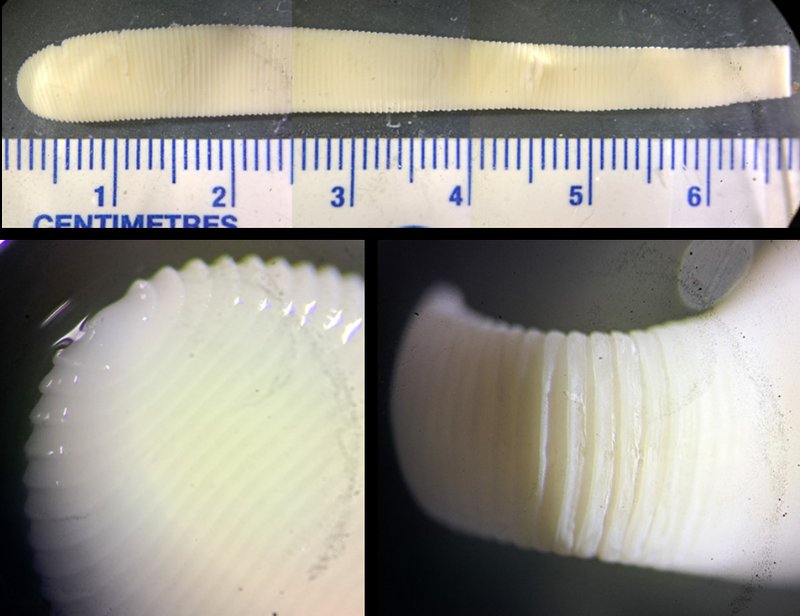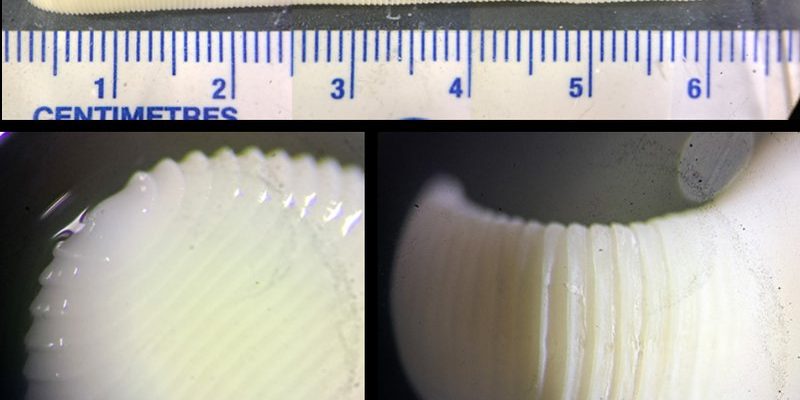
Guppy tapeworms, scientifically known as *Bothriocephalus acheilognathi*, are parasites that can affect guppies and other freshwater fish. These tapeworms make their home in the intestines of their host, where they can sometimes cause issues. Picture your tiny guppy swimming around, happy and carefree, completely unaware that it has an unwelcome guest. Sounds like a plot twist in a nature documentary, right? But let’s dive in a little deeper to understand these creatures!
What Exactly Is a Guppy Tapeworm?
Here’s the thing: guppy tapeworms are flat, segmented parasites that can grow quite long inside their hosts. They attach themselves to the intestinal wall using tiny hooks and suck out nutrients. To visualize it, imagine a long, flexible ribbon sticking to the insides of a tube—while the fish is trying to absorb nutrients, the tapeworm is swooping in and grabbing its share. This means that your guppy could be missing out on essential vitamins and nutrients it needs to thrive.
These tapeworms are typically spread through contaminated water or food. For example, if a guppy eats infected food or lives in tainted water, it’s at risk of becoming a host. Unfortunately, if you’ve got a community tank with multiple fish, one infected guppy can quickly spread the problem to others. That’s why it’s crucial to keep an eye on your fish and maintain a clean environment.
Guppy tapeworms can be tricky because they often show few symptoms in the early stages. This can lead to a situation where multiple fish are infected before you even realize there’s a problem. So, let’s see what those signs are and how to spot them quickly.
Signs of a Guppy Tapeworm Infection
You might be wondering: how do I know if my guppy has a tapeworm? Look out for a few key symptoms. Here’s a quick list to keep in mind:
- Weight loss: If your guppy is looking a bit skinnier than usual, it might be a sign.
- Restlessness: An infected guppy may swim erratically or rub against objects in the tank.
- Pale coloration: Sometimes, tapeworms can cause your fish to lose their vibrant colors.
- Visible tapeworms: In severe cases, you might see segments of the tapeworm around the fish’s anus.
If you notice any of these symptoms, don’t panic! Observing and acting quickly can make a significant difference. Think of it like catching a cold early—you can often recover quickly with the right care.
Why Do These Symptoms Occur?
The symptoms arise mainly because the tapeworms block and compete for nutrients. This can lead to malnutrition, and as a result, your guppy becomes weaker and less colorful. Imagine a person trying to run a marathon but only having a few crackers to eat—that’s what a guppy feels like when it’s infected.
Also, stress plays a significant role. When fish are unhealthy, they’re more likely to become stressed, leading to a vicious cycle. By addressing the problem quickly, you can help your guppy regain its strength and color.
How to Treat Guppy Tapeworms
First things first, if you suspect your guppy has a tapeworm, you should consult your local fish vet or an experienced aquarist. They might recommend deworming medications specifically designed for fish. Here’s a general guide on how to proceed:
1. Isolation: If possible, separate the infected guppy from the rest of your fish. This helps prevent the spread of the tapeworm.
2. Medication: Administer the recommended deworming medication. Be sure to follow the dosage instructions carefully—too much can harm your fish.
3. Clean the Tank: A clean environment is essential. Regularly change the water and remove any uneaten food to prevent reinfection.
4. Monitor: Keep a close eye on your fish during treatment. It’s important to check for improvements or any new symptoms.
Taking these steps can help your guppy recover and keep the rest of your tank safe from infection.
Alternative Treatments and Prevention
Alongside medication, some fish owners opt for natural remedies, like adding garlic to their fish’s food. Garlic is believed to have some antiparasitic properties. However, these methods are generally less reliable than medications.
You can also prevent guppy tapeworm infections by maintaining a clean tank and providing high-quality food. Regularly check your water quality and keep the tank free from debris and waste. It’s like keeping your home tidy—not only does it look good, but it also keeps problems at bay.
Why Should We Care About Guppy Tapeworms?
You might be asking, “Why does this even matter?” Well, understanding guppy tapeworms and other parasites is essential if you’re a fish keeper. Whether you’re a hobbyist or a serious aquarist, your goal is to ensure the health and happiness of your fish.
By being aware of potential threats like guppy tapeworms, you can take steps to prevent complications and ensure your aquatic friends live their best lives. Caring for fish can be a wonderful experience, but it’s essential to stay informed about their health.
The Bigger Picture
Caring for fish isn’t just about keeping a tank filled with water. It’s about creating a healthy environment where your fish can thrive. By learning about issues like parasitic infections, we contribute to a more vibrant and balanced ecosystem, whether it’s in our tanks at home or in nature.
Guppy tapeworms might sound alarming at first, but by understanding them, you can better protect your fish. These tiny parasites can affect your guppies by stealing vital nutrients, but with a little knowledge and care, you can keep your aquarium healthy and thriving.
Being proactive about fish health, maintaining a clean tank, and monitoring your guppies can help prevent infections and ensure a peaceful underwater world. So the next time you see your guppy swim joyfully, you can be confident it’s free from unwanted guests. Happy fishkeeping!

